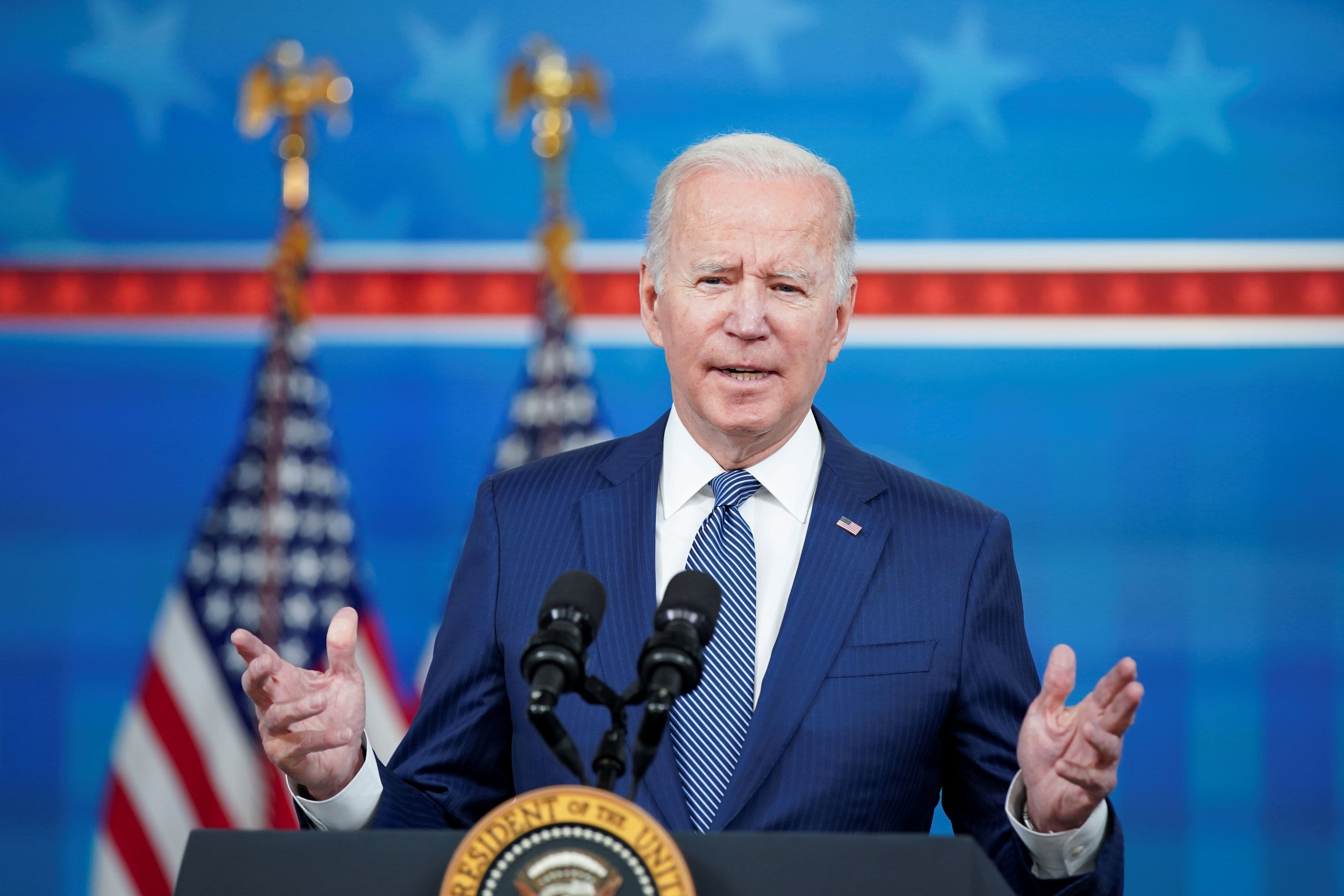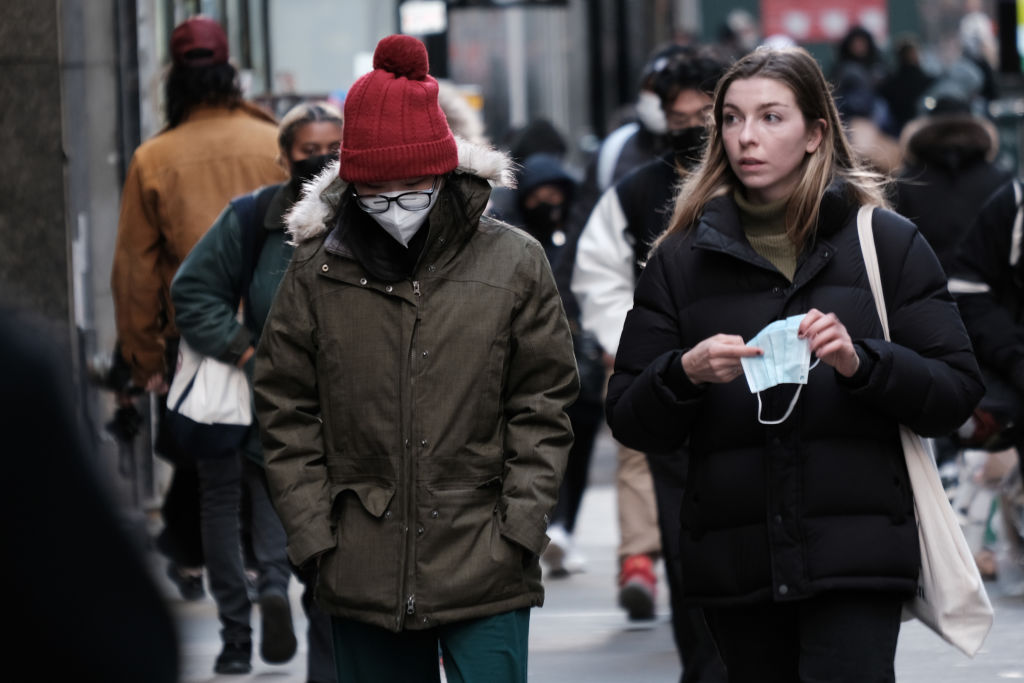What to Know
- A vaccinated Minnesota man who attended a two-day convention at NYC's Javits Center last month is confirmed to be the United States' second omicron case; the first was announced in California a day ago
- Officials have long said it's only a matter of time before the newest variant is detected in every U.S. state; that window appears to be shortening rapidly for New York, the one-time pandemic epicenter
- Gov. Kathy Hochul on Thursday pledged Thursday not to overreact to the news out of Minnesota, citing vaccination as a critical defense in preventing further spread and the lack of data around omicron so far
The U.S. has now confirmed its second omicron variant case -- in a Minnesota resident who recently traveled to New York City for a two-day convention at the Javits Center in Manhattan, the state's Department of Public Health said Thursday.
The news came the same day the state reported 11,300 new positive cases of COVID-19, the highest single-day total since late January, along with new months-long highs in daily deaths and statewide hospitalizations.
Omicron has yet to be confirmed in the Empire State but as Gov. Kathy Hochul has said, "It's coming."
Get Tri-state area news delivered to your inbox.> Sign up for NBC New York's News Headlines newsletter.
The Minnesota case is an adult male who lives in Hennepin County and had been vaccinated, officials said. He attended the Anime NYC 2021 convention at the Javits Center from Nov. 19-21. It's not clear what else he may have done in New York City during his visit, but he developed mild symptoms on Nov. 22 and was tested for COVID two days later, officials said. His symptoms have since resolved.
Gov. Kathy Hochul and other officials, as well as public health leaders, had said it would only be a matter of time before omicron was detected locally -- and that window appears to be shortening rapidly. New York state sequences only about 3.5% of positive COVID samples for variant isolation, similar to other states -- but it means that variants like omicron can circulate widely undetected for some time.
Hochul said Thursday the Javits Anime convention organizers have a complete list of those who attended the two-day event and she expects contact tracing to move along much faster than it would have a year or even six months ago. She also said she and New York City Mayor Bill de Blasio would hold a joint press briefing soon, though didn't say exactly when, to outline next steps once they learn more details.
De Blasio issued a statement late Thursday morning noting the Anime NYC convention required masks and complied with the city's Key2NYC requirement to mandate vaccination.
The Javits Center later confirmed that point, saying in a statement, "All visitors at the Javits Center are required to show proof of vaccination and wear masks while indoors, and we are working closely with our government and industry partners to learn more about this individual case."
In the meantime, the mayor said New Yorkers should assume community spread of omicron is already underway and urged anyone who attended the conference to immediately get tested and take additional precautions, especially if symptomatic.
His health commissioner, Dr. Dave Chokshi, who himself battled COVID earlier this year, sought to drive home the point in a Twitter thread.
As the state and city finesse a coordinated response, Hochul did note there would be no knee-jerk reaction to Thursday's news or when omicron is officially detected in New York.
"I will not cause a panic to the people of this state who have already been through so much. I am not an alarmist. I'm not considering shutting down schools or the economy at this time," Hochul said when asked the question.
"That would be an over-reaction. Imagine where we would be if we didn't have the vaccination. Then we would be in a crisis situation," she added. "I don't see a return to that as long as the vaccine and the boosters continue to work."
Thursday's development out of Minnesota came minutes before Hochul officially introduced New York's new health commissioner, a woman praised for her calm in handling the city's Ebola scare in 2014 whom the governor says is uniquely equipped to handle ongoing COVID challenges. Those appear to be mounting.
Omicron has now been confirmed in California and Minnesota and is expected to be detected in New York imminently. With hospitalizations and deaths rising markedly among the unvaccinated, the assumption of the reins by Dr. Mary T. Bassett comes at yet another critical juncture in New York's years-long COVID war.
In her first words to New Yorkers as their top state health official, Bassett said she was in close collaboration with the CDC and other health agencies and continuing to monitor the situation. She noted omicron does appear to be a more contagious variant but stressed at this point, "nobody really knows for sure" as far as whether it makes people who get infected with it sicker or more prone to reinfection.
"The news that comes in continues to suggest that it is not more lethal than other variants we have seen, but we all are waiting to learn more," Bassett said.
She added that New York's Wadsworth Center, one of the premier sequencing labs in the country, is increasing the share of positive cases it evaluates for potential variants but didn't elaborate what that meant in terms of case percentage checked.
"The fact we haven't detected it means it could still be very rare here," Bassett said. "That we have an exposure means it's highly likely it will be detected in the coming days."
Hochul initially announced Bassett's appointment to replace the embattled Dr. Howard Zucker in late September but her official start date was Wednesday, the same day the CDC announced the first U.S. omicron variant case in California.
Much remains unknown about the newly identified variant, which first emerged in South Africa and has since spread to two dozen countries. The World Health Organization has labeled it a variant of concern, though U.S. officials say more research is needed to determine whether it poses a higher risk of reinfection or severe illness or is potentially more evasive when it comes to vaccines.
At this point, the working theory is that omicron is at least more transmissible than earlier strains. Its emergence -- and largely unknown potential threats to the U.S. -- comes at a time when New York is seeing its core COVID metrics rise markedly.
The Empire State reported months-long highs in the number of new daily deaths, total hospitalizations and daily cases this week and both those numbers rose again Thursday. Virus hospitalizations stand at 3,093 as of Thursday, a 71-patient climb after surpassing 3,000 for the first time since April a day earlier, Hochul said.
That's a 62% increase in the last month. It's still a far cry from the highest mark of nearly 19,000 back on April 12, 2020, and from the second wave's highest mark of 9,273 back in January. But Hochul says that metric, combined with the rising daily deaths (49 on Thursday, another months-long high) is cause for concern, especially for the nearly 20% of New York adults who aren't yet fully vaccinated.
Hochul says her administration is gearing up for any potential eventuality out of an abundance of caution, triggering a state of emergency to expedite federal resource flow and hospital capacity boosts.
"We are carefully monitoring the spread of COVID-19 and the emergence of the Omicron variant, which was detected in a visitor to New York City. Let me be clear: this is not cause for alarm," Hochul said. "I want all New Yorkers to know that their state government is prepared for this. Thanks to the life-saving tools at our disposal, like vaccines and boosters, we have the tools in our arsenal to fight this pandemic. I urge every New Yorker to take the necessary steps to keep themselves and their communities safe: get vaccinated, get boosted and wear a mask."
Hospitals across New York are already reporting increases in COVID-19 hospitalizations, particularly in rural and lower vaccination rate communities. Out of 45 COVID-related deaths reported on Wednesday, 10 of them were in less-populated Erie County compared to at least seven within New York City,
Bassett similarly urged vaccination and protective measures Thursday in her debut remarks as the state's health commissioner. She's no stranger to New York -- or infectious diseases. She previously served as commissioner of the New York City Department of Health and Mental Hygiene and led the department’s response to the Ebola scare and other disease outbreaks.
Hochul hopes she will help usher in an era of collaboration with local governments and address public health issues and racial and socioeconomic disparities.
Her former employer, Mayor Bill de Blasio's administration, has echoed Hochul's concern over the COVID numbers in recent weeks, though core viral rates in the city, where the full vaccination rate among adults is up to 82%, are still largely stable.
De Blasio continues to push vaccination as the central strategy in the fight against COVID, though says he reserves the right to fight omicron by any means necessary, including reinstituting an indoor mask mandate for all people regardless of vaccination status if the data supports it. So far, that data isn't there, he says.
Right now, one data point New York officials are keeping a close eye on is hospital bed capacity. Six NYC-area hospitals are below the threshold of 10% bed capacity Wednesday, meaning that they are more than 90% filled. Two of these hospitals are Queens, three are located on Long Island and another is in Westchester County.
The 90% threshold exists to allow the state Health Department to shut down elective surgeries to free up bed capacity if needed. Hospital officials say the recent capacity rate may not be related to COVID at all though and could be seasonal.
"All hospitals have ups and downs in their census and I have to move staff as well as patients. It is an everyday activity," said Dr. Mitchell Katz, the city’s Health + Hospitals chief.
Some U.S. officials are attributing much of the latest COVID spike, which is also occurring nationally, to the delta variant, which evidence shows causes more severe illness, is more transmissible and linked to a higher risk of reinfection.
About 56,000 Americans are hospitalized with COVID, according to a seven-day average of Department of Health and Human Services data through Wednesday, up 8% over the previous week and 20% from the country's most recent low point on Nov. 10. President Joe Biden is expected to unveil his winter battle plan, one that will include free at-home tests and tighter travel rules, later Thursday.



